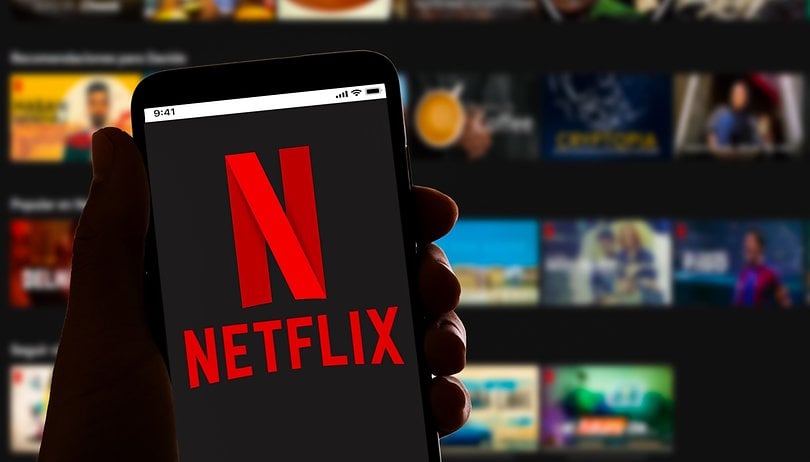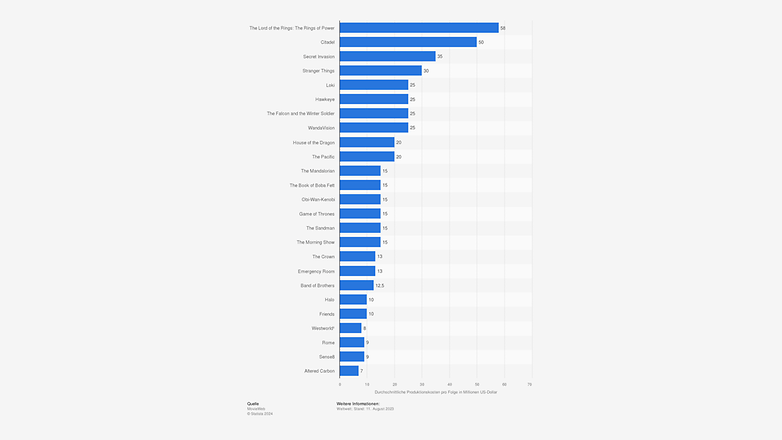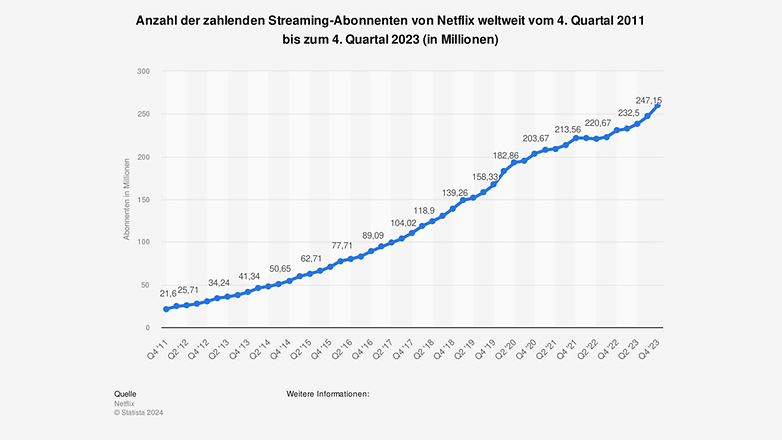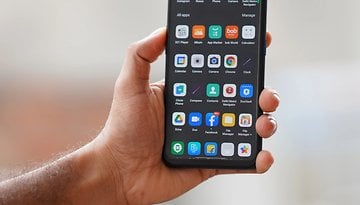Netflix, Disney+ Price Increases: Will They Ever Stop?


Read in other languages:
Streaming services have replaced analog television for some years now. Netflix, Amazon Prime, Disney+, and many other service providers have seen their subscription numbers skyrocket—especially during the pandemic. However, subscription costs continue to rise annually and there are now even subscription options that provide us with unnecessary (and unwanted) advertising. Why is that happening? Has production become more expensive? Are Netflix, Amazon, and other video streaming services now greedier? nextpit searches for the answers to these questions!
"Amazon Prime Video is getting more expensive." A few weeks ago, this news didn't exactly generate a lot of enthusiasm and annoyed customers of the online mail-order company. The new subscription model, which allows you to suffer through ad breaks, is also now a common practice at Netflix and WoW (formerly Sky Ticket). However, the entire shebang is made worse by the fact that the quality of the streams now also suffers as a result.
Price increases by Netflix, Amazon, and others
Film and series production requires money. A lot of money. There are series, such as Dark from 2017, that get by with production costs totaling $17 million, but this tends to be the exception for in-house productions as opposed to the rule. Back in 2016, an episode of Stranger Things cost around $30 million.
However, these popular Netflix productions are not in bad company. Marvel, for instance, pays a whopping $25 million per episode of Loki, Hawkeye or WandaVision. However, no Disney or Netflix series sits at the top of the list. The most expensive show of all time comes from Amazon. We are, of course, referring to the Lord of the Rings spin-off, "The Rings of Power". A single episode already costs $58 million!

At Statista, you can find a detailed list of a study by MovieWeb. What does this have to do with the development cost of Netflix and other streaming services? They repeatedly cite the rising production costs of TV series as the reason for the increasing subscription fees and introducing new subscription models. However, as you can see, older series are also quite expensive. So why are production costs rising?
The current problem with Netflix, Disney+, and others
As paying customers, we always want something new and entertaining. However, I think it makes no sense to publish TV series whose production costs exceed the gross domestic product of small island states. This is especially so if the series is rated as simply "okay", as is the case with The Rings of Power. Nevertheless, streaming providers pass on these costs to customers.
There are certainly perfect counter-examples. According to IMDB, the aforementioned Stranger Things is one of the best TV series ever with a rating of 8.6. Nevertheless, the greed of streaming providers seems to prevail here. Poor productions are increasingly the order of the day and attempts are being made to follow trends that simply do not deliver the desired box office results.

The sheer greed and the willingness of customers to pay means streaming services are all too happy to increase their costs with wanton abandon. Before you wonder why I only refer to Netflix, I'd better explain why. Netflix is a prime example of what has gone wrong in the streaming market. Other providers, such as Disney+ or Sky, also have the same problem.
The market for video-on-demand services is booming. This is because people, including myself, are simply lazy. We like to select certain content and take advantage of the convenience of such services. However, the companies know this as well and are constantly introducing changes that are not necessarily customer-oriented.
Video-on-demand streaming in 2024
Let's move on to 2023 and 2024, where even I, who has been a loyal customer of these providers for years, am starting to get angry. The problem lies with the providers' new subscription models. If you want to take advantage of the various subscriptions without having to suffer from advertising, you are asked to pay for a "premium" subscription. If you don't want to spend unnecessarily more, you'll have to put up with advertising interruptions.
- Read also: The best smart TVs in 2024
What has worked for Netflix and WoW so far has now been adopted by Amazon. However, things are a little different here. On the one hand, Amazon already offers a free channel known as "Freevee", where you are bombarded with advertising. On the other hand, Prime Video customers often also have a normal Prime account. As a result, you suddenly pay more for the actual Amazon service.
However, if you decide against the premium model, you will not only enjoy the unwanted advertisements, but also have to make do with poorer video quality. This is because Amazon offers poorer picture and sound quality for the standard version and you don't get access to content with Dolby Atmos or Dolby Vision. In addition, Amazon does not even explicitly inform customers about this.
DAZN and the soccer license
TV licenses are another important factor for streaming providers. Let's take soccer as an example. If you want to watch all Bundesliga 1 and 2 matches, you need both a DAZN and a Sky subscription. Together, this adds up to around €80 for the most affordable monthly subscription model (€44.99 for DAZN and another €35.50 for Sky Bundesliga). Due to the confusing licensing system of DFL, several providers have the right to broadcast certain matches and fans are the ones who suffer in this case.
Personally, it's just too expensive for me. For €80, I can easily travel from my home to my favorite club in Kaiserslautern at least once a month and watch a live game with friends; possibly even more often than once a month if I decide against enjoying the expensive stadium beer.
Fortunately, something good seems to be happening here. The TV rights for the upcoming 2024/2025 season are to be auctioned off in April, as the German Federal Cartel Office has ruled that there is now more movement on the market and such an auction is now legitimate. For the end consumer, this means such transmission madness may soon come to an end.
Are there alternatives?
There are no alternatives. That's what I said. However, that's not entirely true. You do, of course, have the option of using various alternative services. First and foremost, there is an on-demand TV service from various mobile phone providers. This is even more stark with the abolition of the service charge privilege, as all of them are really stirring up the advertising drum and in some cases, offering you up to 9 months of free TV.
However, these are also subscription models to consider. If you want to integrate Netflix, for instance, it will be more expensive. However, it is worth waiting for different promotions. Waipu.tv is currently offering a Perfect Plus subscription in combination with the WoW Movies & Series subscription for just €5 per month. However, such deals are quite rare. Do bear in mind that these are for the European market, and the situation might be different in the US.
You also have the option of signing up for subscriptions via foreign sites. At this point, however, I would just like to throw the keyword VPN into the mix without explaining how the whole thing works. You can find information about this from the internet. Enough from Deal-Dustin for now and back to Debate-Dustin.
I won't be recommending the last option left to you, but it is extremely popular. We are, of course, referring to torrent sites. These sites offer movies and TV series for free. However, we are no longer in a legal gray area here, but in the darkest shade of black you can imagine. If you stream something via these sites, you are guilty of copyright infringement and, according to an ECJ ruling from 2017, the mere viewing of such content is sufficient for a conviction.
If you use such sites, you should always be aware that you are liable to prosecution.
Conclusion
With their actions, streaming providers are driving more and more customers to opt for more expensive subscription models or even cancel them. As a result, more and more people are deciding to watch TV via cable TV again. That's how it should be at the moment. However, recent studies as shown earlier in this article, show that customers in Germany (or generally, Europe and the rest of the world by extension) are simply accepting the price increase without complaining too much.
Now, Netflix has just announced it will be increasing its prices again. The last price increase in the US for the Basic plan was from $9.99 to $11.99 per month. Variety claims to have stumbled upon early indicators of yet another round of increase. Experts assume that the cost of a subscription to the streaming service could rise further down the road.
What is left for me to say? For me, video streaming is and will remain a necessary evil. I will continue to express my displeasure even if subscription costs continue to rise, but I will still consume whatever content is provided. This is because we humans, myself included, are one thing above all —really lazy.
I would be very interested in your opinion on the whole issue. How do you feel about the matter? Do you think the price increases are justified? Do you use streaming services? Let us know in the comments!



















